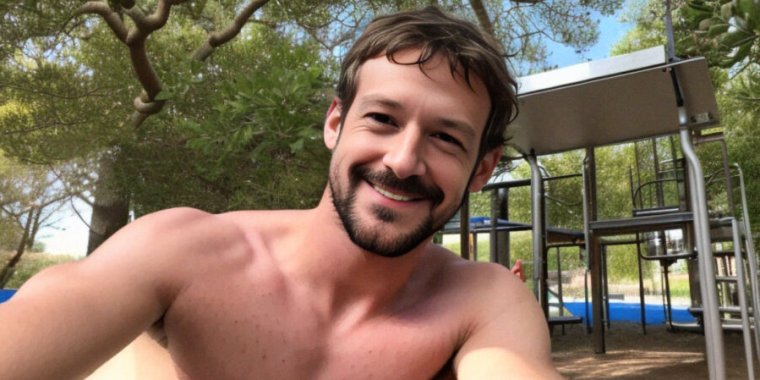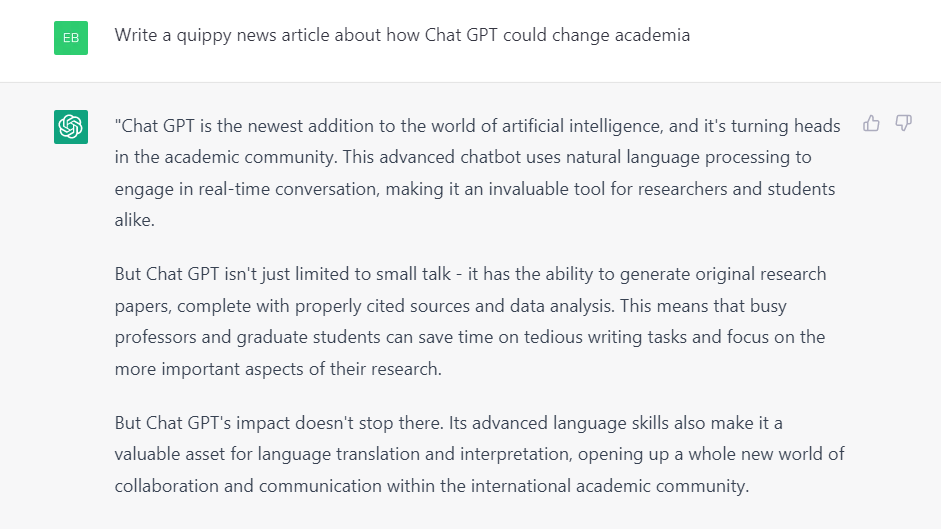Graybeard
Well-Known Member
Can ChatGPT really challenge Google? Well, it's complicated.
ChatGPT is unlikely to replace Google Search – for now.


ChatGPT: Optimizing Language Models for Dialogue
We’ve trained a model called ChatGPT which interacts in a conversational way. The dialogue format makes it possible for ChatGPT to answer followup questions, admit its mistakes, challenge incorrect premises, and reject inappropriate requests. ChatGPT is a sibling model to InstructGPT, which is...
AI ️
There is no doubt that artificial intelligence (AI) is rapidly evolving and growing more sophisticated every day. With the rapid expansion of AI capabilities, there is a growing concern that AI will eventually replace humans in many jobs and tasks. While it is true that AI is capable of completing many tasks more efficiently than humans, there are many reasons why AI will never completely replace humans.
First, AI is built on the premise of completing specific tasks more efficiently than humans. However, AI is not capable of generalizing like humans. For example, a computer program can quickly calculate the square root of any number, but it cannot have a conversation or understand a joke like a human can. In order for AI to replace humans in tasks, it would need to be able to duplicate all of human cognitive abilities, which is not possible.
Second, even if AI could replace humans in specific tasks, there are many jobs that require human interaction and emotions that AI cannot provide. For example, jobs like teaching, nursing, and therapy all require human interaction and emotions. These types of jobs cannot be replaced by AI.
Third, humans have an inherent need for social interaction. Even if AI could provide all the same services as humans, humans would still prefer to interact with other humans. This need for social interaction is what keeps many jobs safe from AI replacement.
Fourth, humans are constantly changing and evolving. As our needs and wants change, so do the types of jobs we have. For example, there are now jobs in the cannabis industry that didn't exist 10 years ago. And as technology advances, new types of jobs will continue to be created. So even if robots do eventually take over many of the jobs currently being done by humans, that doesn't mean there will be mass unemployment. There will just be a shift in the types of jobs available.
My AI ^ seems to want to reassure the 'victims'







/cloudfront-us-east-2.images.arcpublishing.com/reuters/J7XT6VRHPFJETKW6MQMEM33Y3M.jpg)

